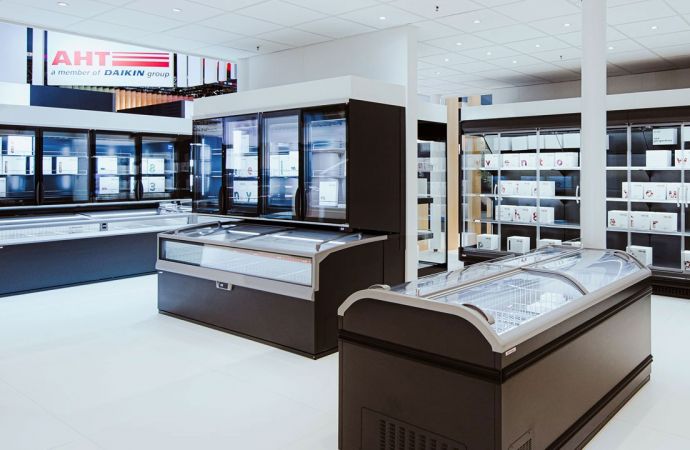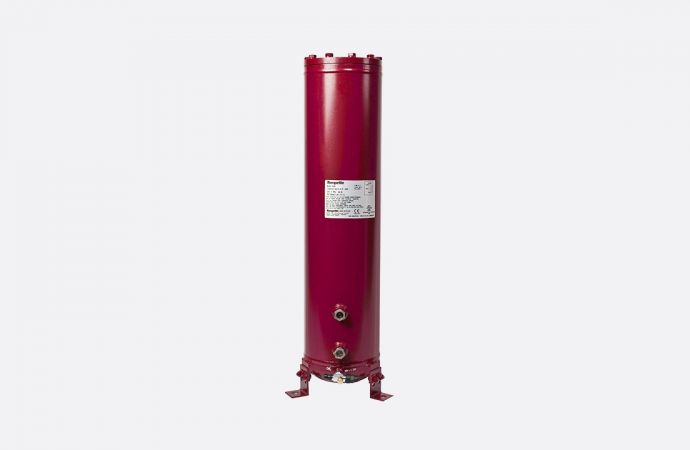A new report from the retail giant sheds light on its share of natural refrigerant systems.

ALDI Suisse store.
Photo credit: ALDI Süd
Shedding light on the company’s share of natural refrigerant systems, a 2017 sustainability report released last week by the German retail group ALDI Süd reports that the discount food retail giant had 1,496 stores using CO2 transcritical systems worldwide in 2017.
Most of the CO2 transcritical systems are in German stores (1,324). Worldwide, putting CO2 transcritical refrigeration technology in 25% of ALDI Süd’s store global portfolio.
Natural refrigerants are at the heart of the retailer’s strategy to reduce its emissions of greenhouse gases. “Compared to carbon dioxide, the potential of these f-gases to contribute to the greenhouse effect (global warming potential, GWP) is up to 4,000 times higher,” the report notes.
“For this reason, refrigerants with a significantly lower GWP, such as carbon dioxide (GWP of 1) or ammonia (GWP of 0), are increasingly used,” it says

One of the retail giant’s key environmental goals is to replace refrigeration systems with a GWP greater than 2,200 with a lower-GWP refrigerant.
“By the year 2020, we intend to reduce our greenhouse gas emissions per square metre of sales floor by 30% compared to the year 2012,” states Sven van den Boomen, managing director (corporate responsibility international) on behalf of the companies of the ALDI Süd Group, in the report. “In most of our countries of operation, we have achieved this goal already.”
Since 2017, 75% of the group’s refrigeration systems have operated on lower-GWP refrigerants. Direct greenhouse gas emissions from refrigeration are currently at 205,051 (tonnes of CO2 equivalent), which ALDI Süd would like to reduce further.
The group uses ammonia-based refrigeration systems in most of its regional distribution centres (2016: 83%), while “all new free-standing chest freezers within our stores which are not connected to the central refrigeration system operate on propane, which possesses a low GWP,” the report says.
The company is also successfully employing heat recovery in nearly 50% of its stores (44.82%).
By choosing natural refrigerants, we are reducing our impact on the environment while also assuring our stores are future-proofed for years to come.”
– Mary Dunn, ALDI UK
It is also set to increase its share of CO2 technology. Last August, ALDI UK announced plans to convert all its UK stores to natural refrigerant CO2. By the end of 2018, up to 100 outlets will be equipped with natural refrigerant-based systems at an investment of some €22 million (£20m).
Thanks to this strategy, ALDI UK will see a reduction in its potential refrigerant gas carbon emissions of 99%.
Mary Dunn, communications director at ALDI UK, said at the time: “By choosing natural refrigerants, we are reducing our impact on the environment while also assuring our stores are future proofed for years to come.”
Related stories



